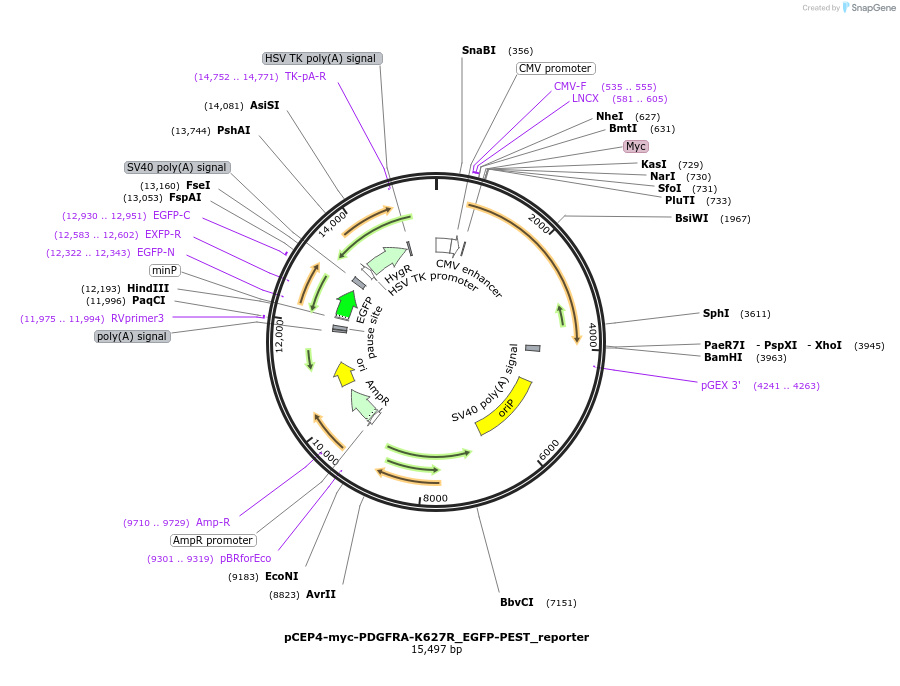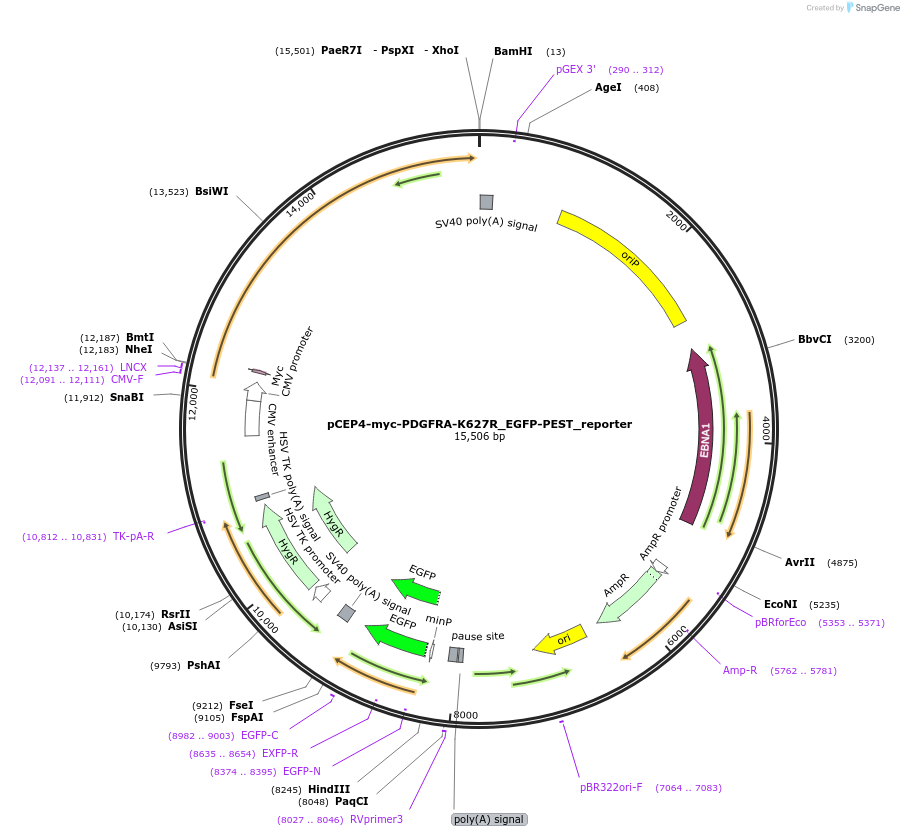pCEP4-myc-PDGFRA-K627R_EGFP-PEST_reporter
(Plasmid
#172597)
-
PurposeMammalian fluorescent (EGFP-PEST) reporter plasmid for PDGFRA-K627R mutant signaling.
-
Depositing Lab
-
Sequence Information
Ordering
| Item | Catalog # | Description | Quantity | Price (USD) | |
|---|---|---|---|---|---|
| Plasmid | 172597 | Standard format: Plasmid sent in bacteria as agar stab | 1 | $89 | |
Backbone
-
Vector backbonepCEP4
-
Backbone manufacturerInvitrogen
- Backbone size w/o insert (bp) 10375
-
Vector typeMammalian Expression ; EGFP-PEST_Reporter
-
Selectable markersHygromycin
Growth in Bacteria
-
Bacterial Resistance(s)Ampicillin, 100 μg/mL
-
Growth Temperature37°C
-
Growth Strain(s)DH5alpha
-
Copy numberHigh Copy
Gene/Insert
-
Gene/Insert namemyc-PDGFRA-K627R
-
Alt nameArray of serum response elements (SRE) to drive destabilized GFP expression from a minimal promoter.
-
Alt namePDGFRA
-
SpeciesH. sapiens (human), Synthetic
-
Insert Size (bp)3324
-
MutationPDGFRA-K627R
-
Entrez GenePDGFRA (a.k.a. CD140A, PDGFR-2, PDGFR2)
- Promoter CMV
-
Tags
/ Fusion Proteins
- Extracellular c-myc epitope tag (N terminal on insert)
- Signal peptide from influenza HA (N terminal on insert)
Cloning Information
- Cloning method Ligation Independent Cloning
- 5′ sequencing primer CMV-F
- 3′ sequencing primer pGEX 3'
- (Common Sequencing Primers)
Resource Information
-
Supplemental Documents
-
A portion of this plasmid was derived from a plasmid made byErik Procko (Addgene plasmid # 136456)
Terms and Licenses
-
Academic/Nonprofit Terms
-
Industry Terms
- Not Available to Industry
Trademarks:
- Zeocin® is an InvivoGen trademark.
These plasmids were created by your colleagues. Please acknowledge the Principal Investigator, cite the article in which the plasmids were described, and include Addgene in the Materials and Methods of your future publications.
-
For your Materials & Methods section:
pCEP4-myc-PDGFRA-K627R_EGFP-PEST_reporter was a gift from Daniel Kiss (Addgene plasmid # 172597 ; http://n2t.net/addgene:172597 ; RRID:Addgene_172597) -
For your References section:
Polygenic risk impacts PDGFRA mutation penetrance in non-syndromic cleft lip and palate. Yu Y, Alvarado R, Petty LE, Bohlender RJ, Shaw DM, Below JE, Bejar N, Ruiz OE, Tandon B, Eisenhoffer GT, Kiss DL, Huff CD, Letra A, Hecht JT. Hum Mol Genet. 2022 Jul 21;31(14):2348-2357. doi: 10.1093/hmg/ddac037. 10.1093/hmg/ddac037 PubMed 35147171




